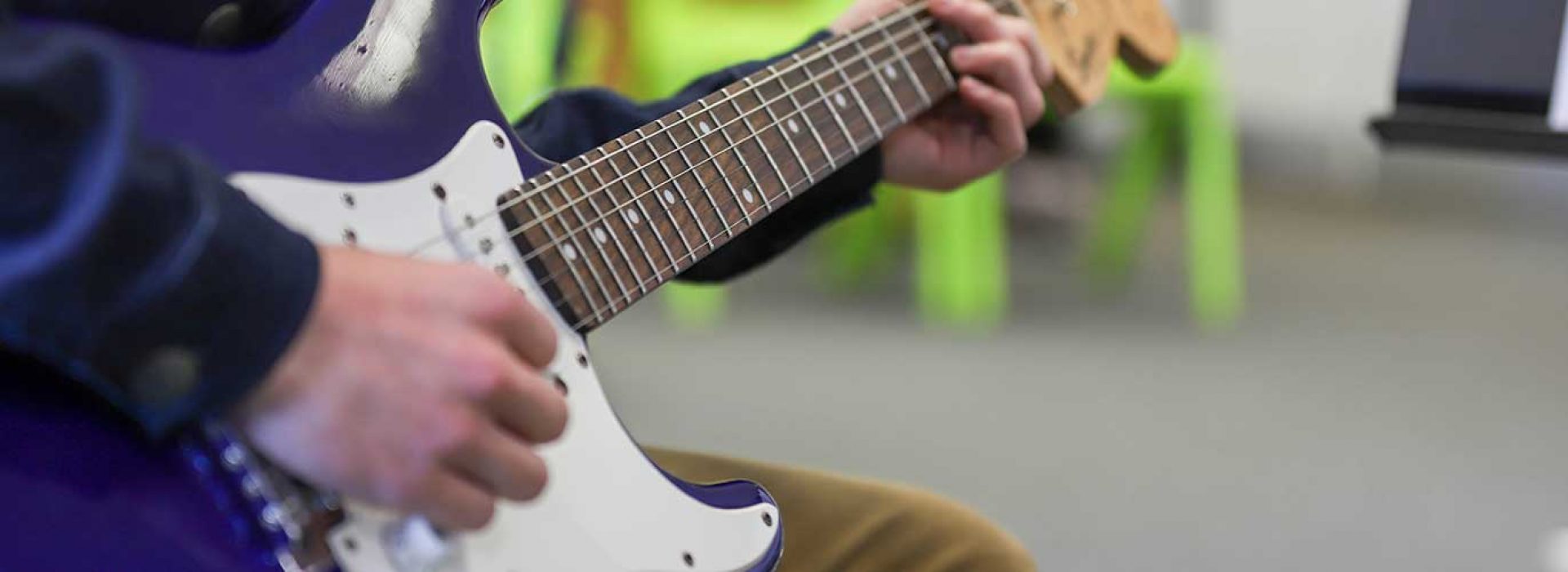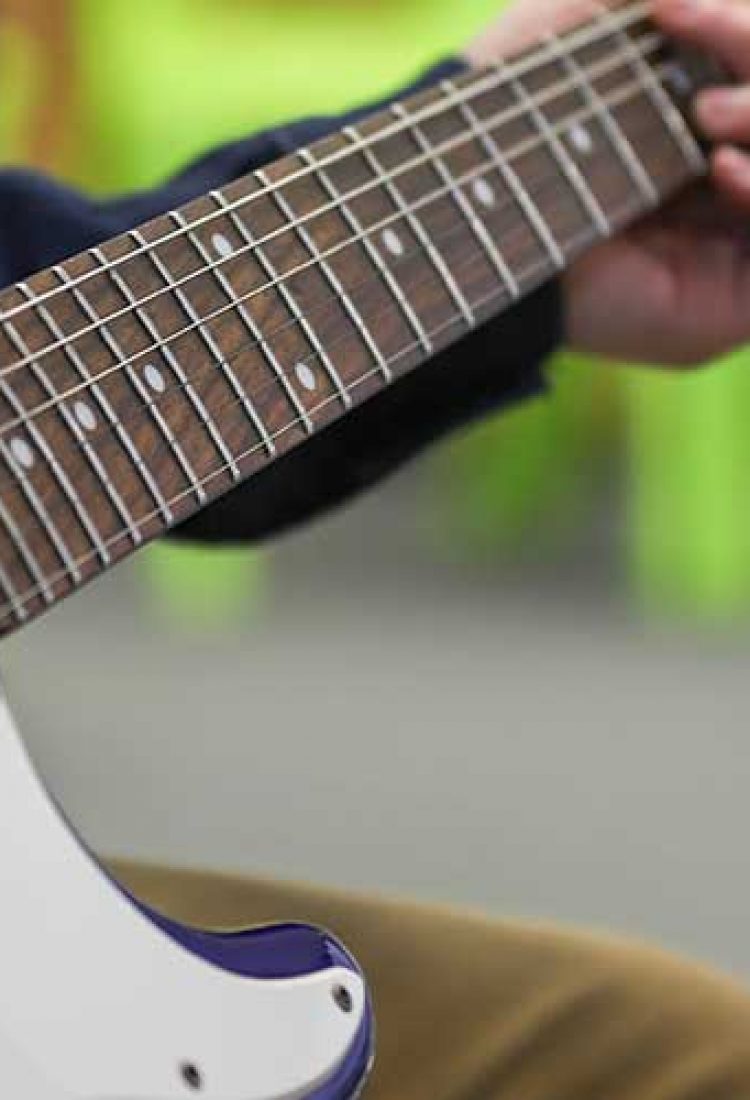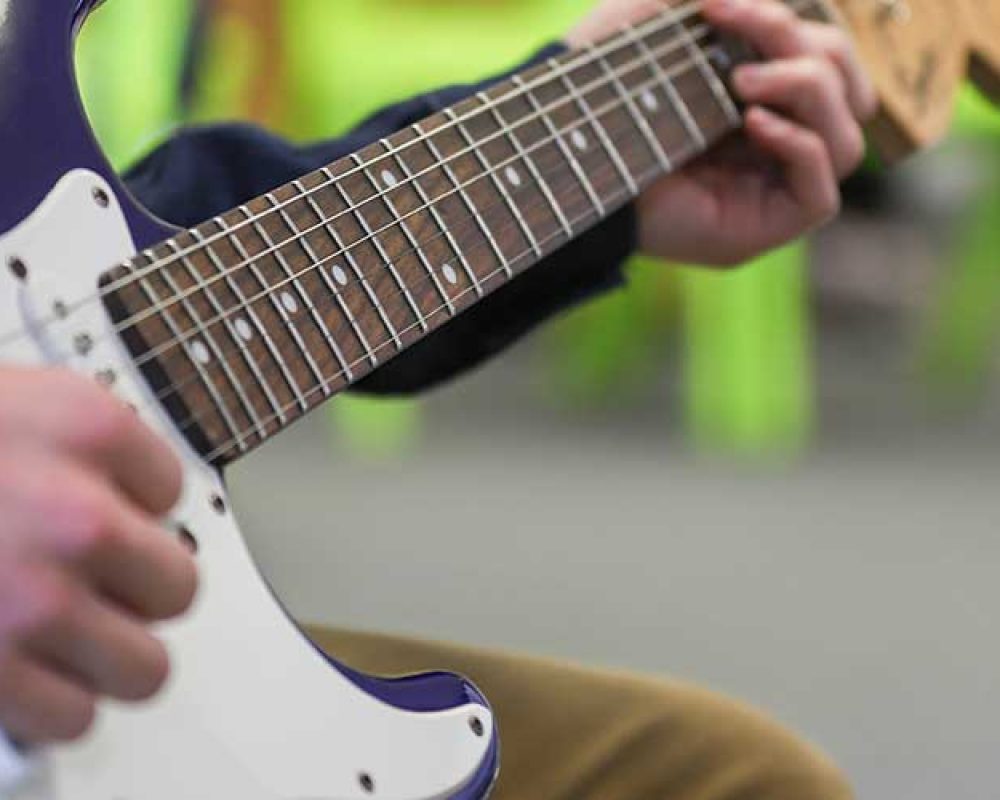Exam Board: OCR
What does the course consist of?
The Music GCSE course runs on the OCR Specification.
60% of the course is coursework undertaken over the two years, 40% involves a listening examination.
Students will be expected to complete the following work and develop these skills:
Composition Coursework:
Write an original piece of music based on a set brief.
Performance Coursework:
Perform one piece of music on a chosen instrument (voice is acceptable) as part of an ensemble.
Integrated Coursework:
Choose a style of music for your instrument which you are most interested.
- You will perform one piece from this style, compose a piece in the same style and produce a written appraisal about your work.
Listening Paper: Study for a written examination of different genres of music. 1 hour 30 minutes.
Assessment and Coursework
Coursework will be completed in controlled conditions over the two years. Students sit the listening examination towards the end of Year 11.
Skills
Music at GCSE will enable you to perform with a high level of musicianship on an instrument of your choice; compose your own music in a particular styles; study the music of other composers under categories such as Rhythms of the World including the styles of Samba and Bhangra, Pop Ballads from the 1950’s to present day, The Concerto through time and Film Music including music for gaming; understand how to read and write music in a variety of differing notation methods and furthering theoretical understanding.
Course Requirements:
- It is highly recommended for students studying Music GCSE to take lessons with a peripatetic instrumental specialist. In addition, a standard of Grade 3 on your chosen instrument/voice is desirable but not essential.
- Students who take GCSE Music should have a real passion for the subject and willingness to learn about new styles/genres of Music. They will be required to work independently on composition and performance tasks and be prepared to spend time rehearsing, sometimes in groups, sometimes individually.
- It is recommended that students studying GCSE Music attend an extracurricular music group, in order to develop their ensemble skills.
Careers
Music teaching at Primary and Secondary levels, as a Community musician or as a private tutor for a particular instrument; working as a professional performer, as a session musician or in an orchestra; working as a sound engineer in the world or media eg TV, film, theatre and radio.


